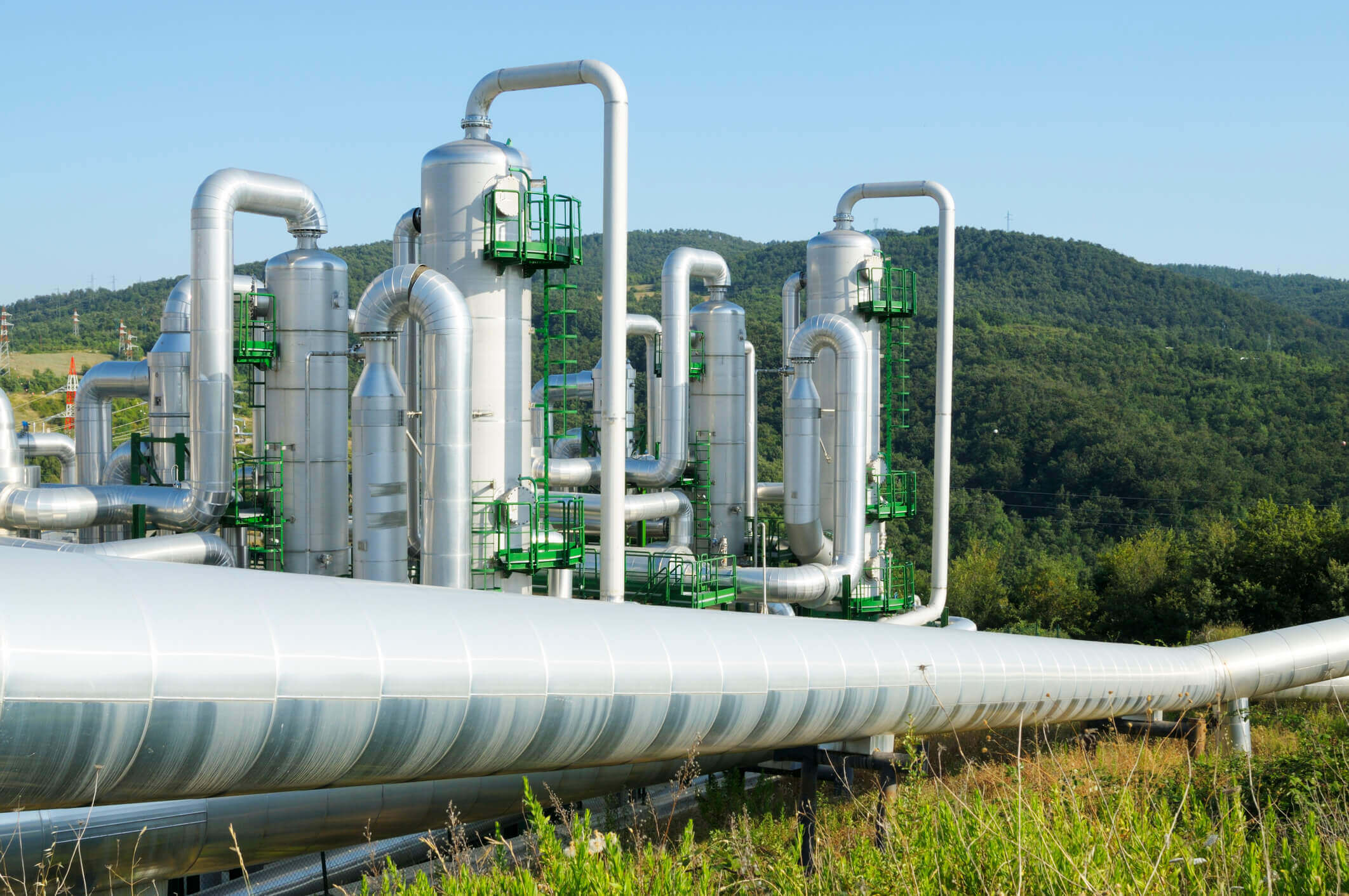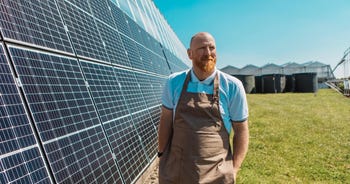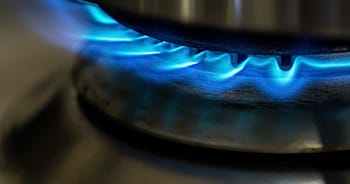What is geothermal energy? The benefits it can have on your business
Geothermal is a type of natural, renewable energy that can be used for heating and generating electricity. Here's all you need to know.
What is geothermal energy?
Geothermal energy refers to the heat that’s beneath the earth’s surface. Deep down, near the earth’s core, there is an abundance of heat and steam from hot rocks that can be harnessed and turned into power above the earth’s surface.
Geothermal is a great low-carbon, renewable energy source. Every day the earth continues to absorb heat from the sun - so it’s unlikely to completely run out like traditional non-renewable sources of energy like oil, coal and gas.
And because it’s low-maintenance, you would think it would play a larger part in our energy mix. But currently, it only makes up 0.3% of the UK’s annual heat demand.
Why? Historically, government funding for geothermal has been limited, but this is slowly changing.
As of May 12, 2023, the UK government pledged to pour £91 million into the Green Heat Network Fund. This will fund deep underground heat networks to supply heat and hot water to homes and businesses across the UK, revealing the potential of this largely untapped energy source.

30-second summary
- Geothermal energy is produced across the globe. Thanks to new technology, we can now extract heat from steam at low boiling points, using binary cycle power plants. But there are two more types of geothermal power plants, dry steam and flash steam that are used traditionally.
- This type of energy is renewable, sustainable, low-carbon and has a long lifecycle. Using more geothermal energy could relieve dependence on fossil fuels, but it does have potential drawbacks including high initial costs, location restraints, resource depletion and escaping gasses.
- Since there are limited geothermal power plants in the UK, businesses can use geothermal by installing ground source heat pumps. Some organisations may also qualify for funding and relief from green taxes.
How is geothermal energy produced?
There are three main types of geothermal power plants:
- Dry steam - These plants have been used for decades. They use hydrothermal liquids that are so hot they are almost steam. The stream drives the generator, which produces electricity. When the steam condenses, it’s put back into the reservoir as cool water - ready to be heated up again.
- Flash steam - These types of geothermal plants are now the most common. They work by pumping hot fluids at high pressures, which causes the fluid to quickly turn (or flash) into vapour. The hot steam is used to push a turbine which makes electricity.
- Binary cycle - This is the only power plant that is designed for creating geothermal power at lower temperatures. This means these plants are better designed to be placed all over the world, not only in places where sub-earth temperatures are extremely hot. Low-temperature fluids pass through a heater exchange with another fluid (or binary fluid). The fluid that’s added has a lower boiling point than water and causes the fluid to turn into steam. Like the other plants, this then drives a turbine which powers up a generator, making electricity.
How is geothermal energy used?
Geothermal energy is harnessed and used heavily in countries situated near tectonic plates, where the earth’s surface (plates) often move. These areas have the highest sub-ground temperatures and include countries like New Zealand, Iceland and Italy.
But that doesn't mean in the UK we don’t use geothermal. New technologies that allow for low boiling points - like binary cycle plants mean we can make use of the power below the earth’s surface in other areas of the world.
And because geothermal energy never switches off, we commonly use it in the UK through ground-source heat pumps. These are used to power up heating and cooling systems in homes and commercial buildings across the UK.
A heat pump is a renewable energy system that works by transferring heat from one place to another, rather than burning oil or gas. Using systems like these is becoming more popular because they are getting more affordable. Businesses adopting this type of technology are paving the way for us to hit our net zero target.
Learn how to power your business with heat pumps.
Is geothermal energy renewable?
Yes, geothermal energy relies on the heat below the earth’s surface and this is available 24 hours a day, seven days a week so it’s unlikely to ever run out - making it a great renewable energy source for powering businesses across the country.
What are the advantages of geothermal energy?
Renewable and sustainable
Geothermal is not dependent on weather conditions like the amount of sun we get or wind like other renewables, making it sustainable for use all year round. It also doesn’t take up a lot of space and has the smallest land footprint of any energy source in the world.
Low greenhouse gas emissions
Geothermal is a low-carbon and low-polluting option compared to traditional fossil-fueled power plants, which we still rely on. It also uses less water on average than most power generation technologies because it utilises the natural heat from the earth’s core. So it isn’t a big contributor to rising temperatures and greenhouse gases.
Long life cycle
Because of the way geothermal works, some of the steam used to power the turbines is returned back underground to be reused and heated up again in another cycle. This repeated, seamless process gives geothermal a long life cycle.
Low operating costs
Although power plants are expensive to build, they last for a long time, don’t cost a lot to maintain, and they also don’t need other types of fuel to run! This keeps operational costs at a minimum.
Energy independence
Most of the energy consumed in the UK is used for heating purposes. A study by Durham University, suggests if we use geothermal properly, we could have up to 100 years of supply! This could cover a large amount of the country’s heating needs and further relieve our dependence on fossil fuels.
What are the disadvantages?
High initial costs
The costs involved in building large geothermal plants and heat schemes are high - up to several million. Although running costs are low it would still take up to 20 years for deep geothermal installations to pay back the initial investment.
Location restraints
Not every location in the UK is suitable for geothermal energy production. And if your business is located away from the power source, it’s then difficult to use it. This creates lots of logistical issues for geothermal expansion in the UK.
Resource depletion and cooling
When cool water is injected back into the reservoirs during geothermal production, it’s depleting the natural heat resource we have. If we continue to do this at scale, we may end up cooling our reservoirs so much that they become unusable.
Land use and visual impact
Power plants are an eyesore. This leaves speculation as to where they should be built. However, geothermal plants don’t use too much land, compared to traditional power plants, making them a better option.
Environmental issues
During the process of extracting heat and steam from the hot rocks below the earth, small amounts of other (harmful) gasses are released into the atmosphere. But, these emissions aren’t as harmful as the amount of CO2 we're currently emitting and can be offset by the amount of geothermal that could be produced. This is much better than using fossil fuels.
Is geothermal energy safe?
Geothermal is a relatively safe form of energy production for both our planet and the people on it. The main concerns are around escaping gasses during production, and potential deterioration of the heat used in the extraction process.
How can businesses use geothermal energy?
Since geothermal energy is such a small part of our energy supply in the UK, the main option for businesses to make use of it is by installing geothermal heat pumps themselves.
Investing in a commercial heat pump could help you save on your business energy bills, cut your carbon footprint and make your more attractive to environmentally conscious customers.
For example, you could install a heat pump to help heat your business premises in the winter. If you own an office, restaurant, café or any premises with a customer footfall then you likely need heating in the colder months. Likewise, a heat pump-powered cooling system could work for hot kitchens in takeaways, hair salons or any business in the summer. It’s an investment that would pay off, all year around.
Are there any disadvantages to businesses adopting geothermal energy?
- It’s expensive to install - Depending on the type of system installed and the size and scale of your business, heat pumps can cost anything from £4,000 to £35,000 - which can be a lot for business owners to stump up front.
- There is no one-size-fits-all - Because of the complexity of heat pumps, there is no standard fitting for commercial buildings. Every business has different heating and cooling needs, so the system will be unique to that property. This means it'll need a bespoke solution using either an air heat pump or a ground source heat pump.
- You might need planning permission - If you install a heat pump unit that exceeds 0.6 cubic metres, you might need permission to build the infrastructure. And getting planning permission can be a time-consuming process. But, if you do get permission, the rewards will likely pay off in the long run once you pay off your initial investment.
- You might not be able to relocate - Once you install a bespoke heat pump, the infrastructure is built into the ground. So if you move premises you will likely have to leave it behind. This means it’s only really suitable if you know your business is unlikely to move.
Is there any support for businesses using geothermal energy?
As of 2022, there is some funding available for particular businesses that plan to build heat pump installations. Eligible businesses can get a grant for up to 50% of the costs of installing a network or cooling system through the Green Heat Network Fund. Funding is given in rounds and those who meet the criteria can apply until February 23, 2024, and then again in the financial year 2026-2027.
To qualify your business must be:
- A public sector organisation including universities that are registered companies and submit annual accounts.
- A third sector organisation such as a registered charity, or community investment company.
You can register for this funding through the Heat Networks website, by completing this form.
Sole traders cannot apply for this grant. If you are unsure if your business meets the criteria you can contact enquiries@tp-heatnetworks.org and they will be able to advise.
For more details on the Green Heat Network Fund read the official government documentation.
If you are not eligible for this funding, you might be able to get some relief on green taxes - like the Climate Change Levy. Read more in our guide to understanding green taxes.
How Bionic can help
If you need some advice on upgrading to green energy, our energy experts will be able to help you compare business energy suppliers to find a solution. We are also on hand to discuss wider business needs including options for business broadband and VoIP systems.
Want to discover more content? Head over to our energy guides page for a range of topics covering renewables to understanding your business energy bills, straight from the Bionic team.








